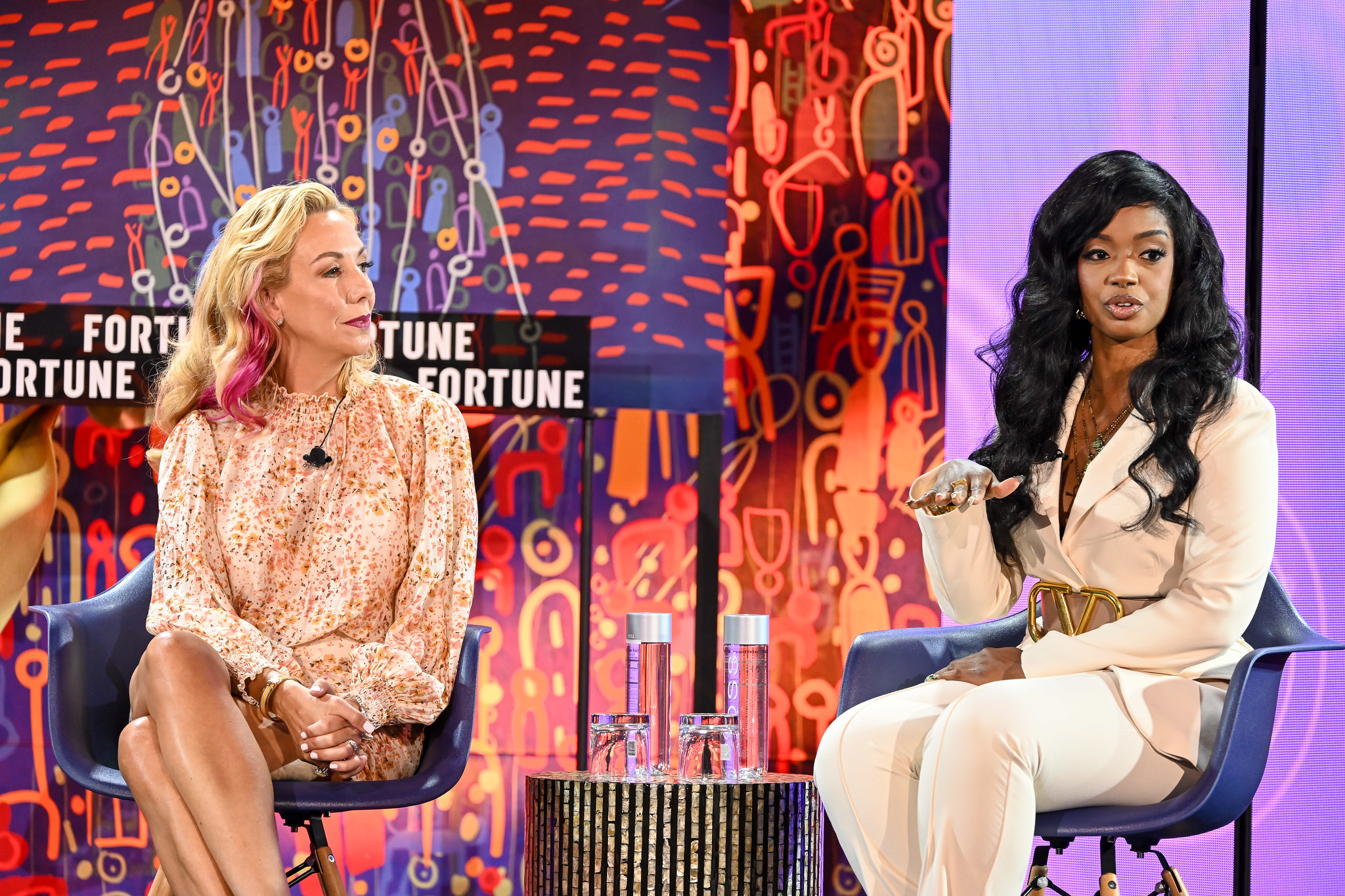
Between May 2020 and October 2022, Fortune 1000 companies pledged about $340 billion to promote racial equity, according to McKinsey. What precipitated this investment in Black-owned businesses and programs to address racial inequity was the murder of George Floyd. The following year, two white men protested that they now felt left out: Edward Blum sued the Fearless Fund to stop a contest for Black women business owners to win $20,000 grants and former Trump administration adviser Stephen Miller sued Hello Alice, alleging its $25,000 grant program for Black-owned small businesses did the same.
My colleague Emma Hinchliffe spoke yesterday with Fearless Fund cofounder and CEO Arian Simone, (who had to shut down her contest), as well as Hello Alice cofounder and president Elizabeth Gore (who beat the class action suit that was filed against her). You can see the full interview here, which closed out our MPW Summit.
The battle is far from over. With companies like John Deere and Harley-Davidson folding to pressure from right-wing activists like Robby Starbuck over LGBTQ+ issues, it’s easy to understand why many corporate leaders prefer to avoid the spotlight when it comes to supporting DEI. Some CEOs tell me they prefer to support DEI quietly. I wonder what’s been scrapped or put on hold.
I caught up with Simone off stage to hear how her venture fund is doing. “The moment we were in litigation, everybody paused,” Simone told me. “We didn’t have one closing during the 13 months of litigation for the fund on the venture side because everybody said, ‘You guys are in a huge DEI lawsuit so come talk to us after that.’”
And now? “The climate is tough,” she said. “This whole spirit of fear has been running rampant … We support women of color as cofounders; some of their cofounders could be white men. Our thesis is to prove that diverse teams outperform nondiverse teams. We need investors to help.”
There’s no question that she’s especially focused on helping Black women get access to capital. Although they’re the fastest-growing group of entrepreneurs in the country, starting businesses at about 4X the rate of the overall population, they receive about .39% of venture capital funding. Simone cited one Black founder who’s generating more than $30 million a year in revenue but can’t secure a critical round of funding.
Gore, meanwhile, was forced to lay off two-thirds of her employees after her lawsuit landed, and found her company being pummeled by cyberattacks and her family targeted with threats. She ended up having heart failure. It’s hard to push back alone.
More news below.
Diane Brady
diane.brady@fortune.com
Follow on LinkedIn
TOP NEWS
BofA CEO raises alarm on national debt
Bank of America CEO Brian Moynihan is joining other Wall Street executives in calling for the U.S. government to prioritize tackling the more than $35.7 trillion in national debt. Neither Kamala Harris nor Donald Trump has a plan to do it. Failure would mean the U.S. will no longer be the “gold standard” economy of the world, according to Moynihan. Fortune
Execs tout degree-less hiring
Executives from Google and Indeed agreed that degree requirements are holding companies back from untapped talent. They say hiring employees without college degrees will help both a company’s financials and the economy overall. Fortune
Bernard Arnault loses billions in a day
LVMH founder and CEO Bernard Arnault lost $10 billion in net worth after shares in the fashion conglomerate fell 7% on Tuesday. The holding company for brands like Louis Vuitton posted a 3% drop in sales. Fortune

